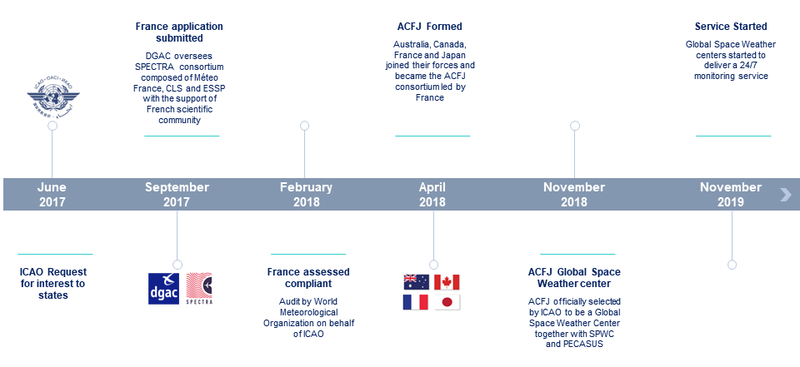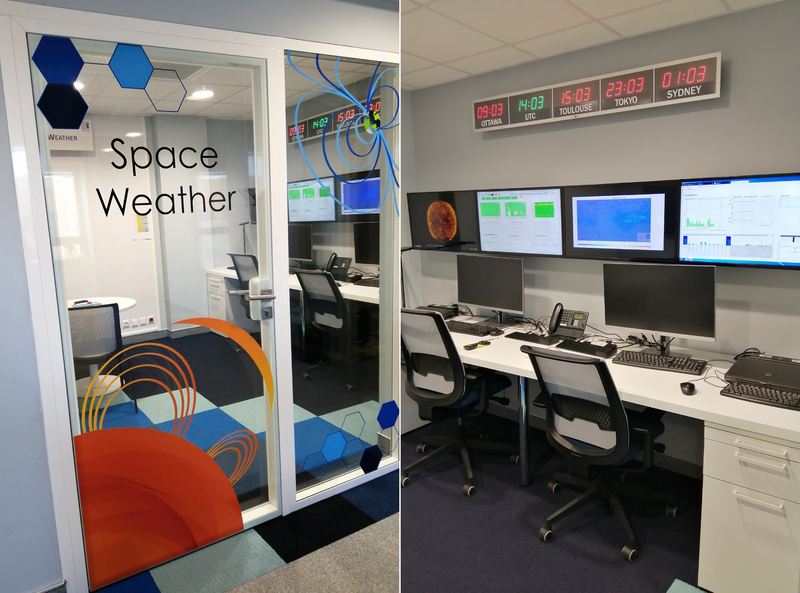ESSP is involved in the provision of the ICAO space weather service to international air navigation
In accordance to its corporate strategy, ESSP is continuously seeking diverse cooperation opportunities with high added value. Having a solid expertise in operations, service delivery and engineering and strong of its experience with Global Navigation Satellite Systems (GNSS), ESSP took the opportunity to bring its operational and technical know-how to a new field of application: Space Weather monitoring for GNSS. The company is now involved in an international Space Weather monitoring service for aviation.
What is Space Weather?
Space Weather is defined by the European Space Agency as the environmental conditions in Earth’s magnetosphere, ionosphere and thermosphere due to the Sun and the solar wind that can influence the functioning and reliability of spaceborne and ground-based systems and services or endanger property or human health.
Impact of Space Weather on human condition and activity
The sun is subject to complex processes that can cause intense energy releases. The emitted energy and particles can travel through interplanetary space to the Earth and can affect its environment. Global Navigation Satellite Systems (GNSS), relying mainly on Radiofrequency waves, are subject to perturbations and outages in case of solar events. In some use cases, those perturbations can impact satellite based navigation performance. Consequently, it becomes of interest to detect or forecast space weather perturbations and inform the international air navigation of any major space weather event potential impact.
The ICAO initiative: Global Space Weather centers designated
In 2017, The International Civil Aviation Organization launched real-time worldwide space weather service for aviation. In 2018, the following three main global centers have been selected:
• The ACFJ : an international consortium that groups Australia, Canada, France and Japan
• The Space Weather Prediction Center (SWPC)/NOAA representing the USA
• PECASUS : an international consortium formed by Finland, Belgium, The United Kingdom, Deutschland, Austria, the Netherlands, Cyprus, Italy and Poland
• CRC: the China/Russian Federation Consortium
These global centers broadcast alert advisories to the aviation to warn about solar and geomagnetic storms that not only can cause disruptions to the communication and positioning systems but also expose aircraft crews and passengers to high levels of radiation.
Each global Space Weather monitoring center is in charge of delivering a continuous Space Weather monitoring service by publishing daily briefs describing the space weather situation and by publishing advisories in case of events that could impact the aviation.
The SPECTRA Consortium for Space Weather
Overseen by the DGAC and supported by the French scientific community, ESSP, CLS and Météo-France form the SPECTRA (SPace weather Expert CenTRe for Aviation) consortium providing GNSS and Radiation service in the ACFJ consortium. These missions are performed using various sensor data that feeds forecasting models to elaborate alert advisories which are broadcasted to the main aviation actors.
The project’s Timeline

Where the magic happens in ESSP
The ESSP space weather team developed a set of software tools, operational procedures and an organizational system to achieve the most efficient monitoring service.
In order to comply with the stringent operational service requirements, a dedicated facility for monitoring is available to the forecasters to review the advisories before issuance.

